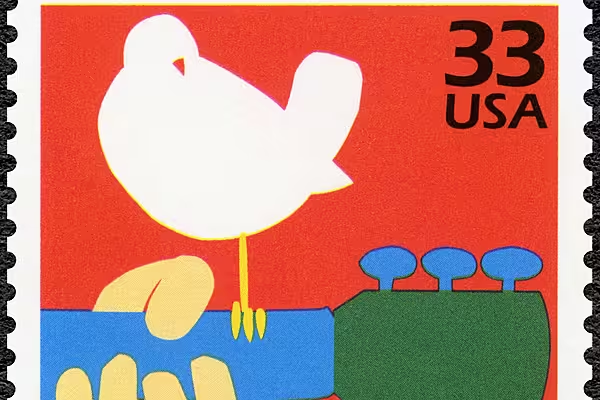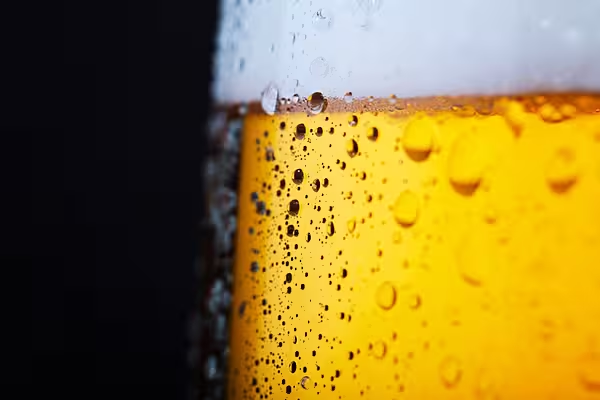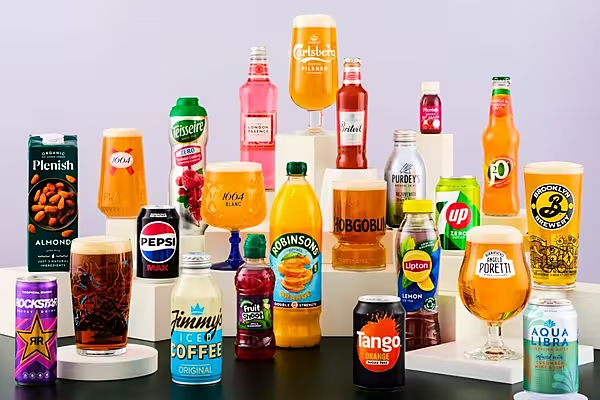As music lovers may be aware, this weekend marks the 50th anniversary of Woodstock – the iconic festival that welcomed 500,000 revellers to upstate New York for 'Three Days of Peace and Music'.
Festivals have changed quite a bit in the years since, with major brands and retailers now an established presence at said events (discounter Aldi recently unveiled its 'largest store ever' at a festival in Neuhausen ob Eck, for example), but while those participating are on the one hand seeking to build brand presence, some are also eager to tap into what could be described as a more 'hippie' vibe... saving the planet.
In announcing its sponsorship of Danish festival Roskilde this year, brewing giant Carlsberg announced its aims to ‘reduce the environmental impact’ of the event, through a series of measures.
Rather than just promoting its beers at the festival, which attracts around 130,000 festival-goers, Carlsberg reported that it would sell a new ‘organic lager’, run its bars on renewable electricity, and replace over one million single-use plastic cups with a sustainable alternative.
“We can put the good beer experience at the forefront, while also using our common efforts to focus on sustainability,” said Søren Brinck, managing director of Carlsberg Denmark.
Product Placement
While festivals and other large-scale events can be a significant opportunity for marketing and product placement, many aren’t particularly eco-friendly venues. Large amounts of waste can be generated by these temporary sites, from abandoned tents to disposable coffee cups and plastic glitter covering the ground.
With this in mind, the UK’s Association of Independent Festivals (AIF) has called on retailers to stop marketing festival tents as single-use items, which result in almost 900 tonnes of plastic waste every year.
As festival organisers and consumers become more environmentally conscious, this means that brands will need to adapt their offerings and activity to remain relevant at music concerts and other events.
So, while its efforts are to be commended, are companies like Carlsberg really doing enough to decrease their environmental footprint, and what initiatives could we see more of in the future?
Reducing Plastic
Branding agency Frukt reported that nearly 450 different brands were involved in 300 music festivals worldwide in 2013, with Coca-Cola, Anheuser-Busch and PepsiCo among the most active sponsors.
Since then, sponsorship has become an even greater element of festivals big and small, but, at the same time, sustainability has also become more of a hot topic for those involved.
More and more festivals across Europe are upping their game when it comes to sustainability, setting up recycling stations, banning the likes of plastic bottles and single-use packaging, and providing free water dispensers, where people can refill their own containers.
Many are introducing festival-branded reusable cups, where customers pay a small deposit. This is meant to encourage festival-goers to return their cups afterwards or bring them home as souvenirs, instead of just throwing them in the bin – or worse: leaving them on the ground.
So, where does this leave brands? A lot of the big drinks companies are getting involved with reusable cups and branded recycling stations, like Carlsberg at Roskilde. At the NOS festival, in Portugal, plastic cups are entirely banned, so Heineken provided cups that are biodegradable and disappear within six months.
Others are being more inventive when it comes to engaging punters with waste reduction. At the Bestival and Isle of Wight festivals in the UK, Old Mout Cider incentivised recycling by offering money back on returned cups and cans, and branded goodies when you visited its biodegradable glitter station, collected a bag of rubbish, or crushed a can on its bike-powered conveyor belt.
Alternative Uses
A certain amount of waste is probably going to be inevitable, for now, at large-scale events, so brands are also looking at ways to reuse this material. In one particular move that made headlines earlier this year, Budweiser created a football pitch using plastic waste from the 2018 FIFA World Cup.
According to parent company ABInBev, more than 3.2 million red Budweiser cups were used during the football tournament. Around 50,000 of these were collected and recycled to create a new playing field in Sochi.
While only a small fraction of the plastic cups were reused for the project, which is not a staggering recycling feat, it’s an example of the type of thing that can be achieved when brands start thinking more creatively about sustainability.
Future Focus
Are a few reusable cups and recycling stations enough, or is this just an easy way for brands to appear as though they are making an eco-conscious effort? While it’s definitely a start, there are bigger roles that companies could play when it comes to cleaning up festival sites, or even finding ways of reducing energy consumption.
According to a recent AIF report, the UK event industry uses an estimated 380 million litres of diesel annually, which emits 1.2 million tonnes of CO2 – approximately the same level of emissions as Malta.
Rob Scully, head of operations at power management firm ZAP Concepts, which contributed to the report, said that festivals could reduce diesel consumption by up to 40% by ensuring that available power is matched to actual demand, and switching to renewable and other energy sources where possible. This is an area where big companies and brands could step in.
“The show must go on, but it could go on in a far more sustainable manner, without risking people’s health and without risking the planet,” Scully added.
Testing Ground
Festivals are like mini makeshift cities. While this can certainly lead to issues with extra waste and emissions, it can also be a great opportunity for brands to trial solutions to sustainability problems.
These events can act as a testing ground for sustainable business ideas, like new products, packaging or initiatives, with a captive audience of consumers. If brands can figure out the best way to go green for festival-goers, they could also build engagement and brand loyalty, and maybe generate a few ideas that could be rolled out to the wider market.
There’s big money involved in festival sponsorship, but if brands want their investment to be worthwhile and remain relevant to Europe’s younger, eco-conscious consumers, they’re also going to need to put a bit of thought and money into sustainability.
The companies that succeed will be the ones that find a way to fit their brand into the fun of the festival, without leaving a field of beer cans, straws, and plastic forks behind them.
Like with Woodstock, however, they can't do anything about the mud.
© 2019 European Supermarket Magazine – your source for the latest retail news. Article by Sarah Harford, edited by Stephen Wynne-Jones. Click subscribe to sign up to ESM: European Supermarket Magazine.













